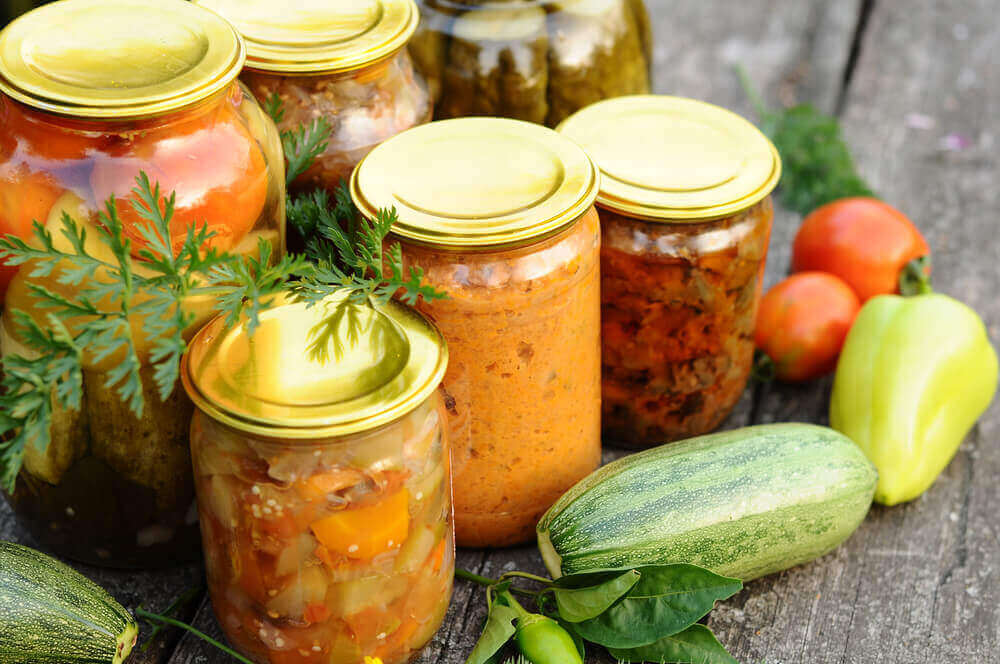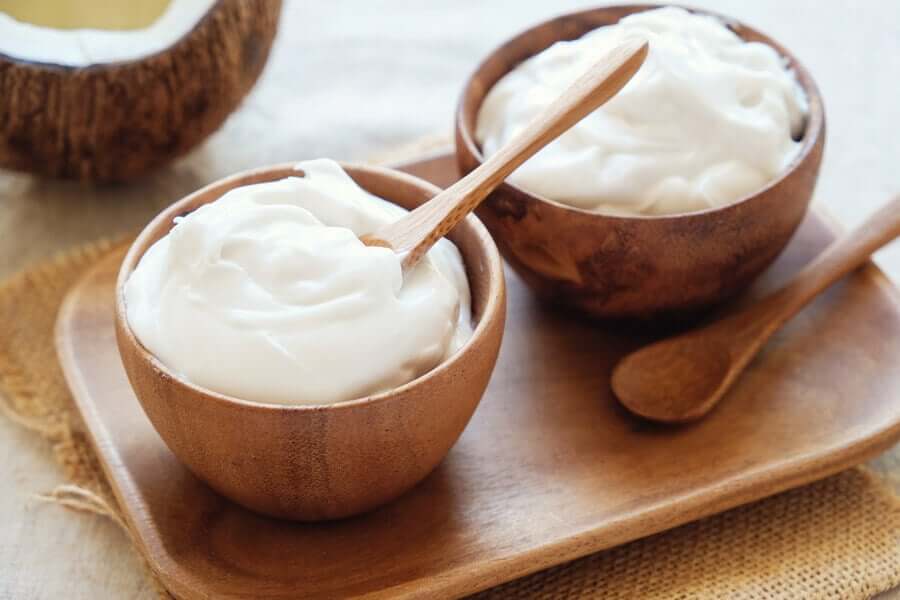What Should You Eat During Confinement?


Written and verified by the nutritionist Saúl Sánchez Arias
To face the period of confinement, it’s essential to have clear nutritional guidelines. Making smart and considerate purchases will allow you to save money, help make sure others have enough, and maximize the efficiency of your meals. So, what should you eat during confinement?
One thing you need to ensure is to guarantee the supply of the nutrients that your body needs to carry out its vital functions. For this reason, you must be careful about what food you buy. Another factor to bear in mind is that you won’t be burning off as many calories these days. Because of that, you should plan a slightly lower-calorie diet to avoid unwanted weight gain.
Next, we’ll get into more detail about which food and products you should buy to keep healthy during this period of confinement.
What should you eat during confinement?
In the face of the crisis caused by the coronavirus (COVID-19), the World Health Organization (WHO) emphasized the importance of maintaining social distancing. Because of this, one of the preventive measures that several countries have adopted is to put the whole population into quarantine.
However, this has caused concern about the availability of food and what you should be purchasing. Read on to find our food recommendations for this difficult period.
Canned food
Canned food has a fundamental advantage over other foods available on the market: its shelf life. This type of food can be a good source of high-quality protein (especially fish and seafood) in our daily meals.
The protein contribution is key to preventing muscle deterioration, according to experts from the Spanish magazine Nutrición Hospitalaria. For this reason, it’s a great option for our nutritional health. Also, we can find fruit and some vegetables in tinned form.
When consuming these products, you need to take into account that you shouldn’t waste the liquid that the product comes in. This way, you’ll ensure that you’ll be receiving all the product’s vitamins and minerals, and you won’t be missing out on its nutritional quality.

Frozen vegetables to get through the confinement period
Vegetables and fruits are perishable foods with a short shelf life at room temperature. However, if we buy them frozen, we can extend their shelf life. This is an important food to eat during confinement. Also, you should note that by freezing vegetables their nutritional properties are unaffected. Only their organoleptic properties (texture, flavor, etc.) will be slightly affected.
The intake of vitamins and antioxidants is essential during this period of quarantine. For this reason, nutritionists tell us that we should have a good supply of frozen fruits and vegetables.
Whole grains
To ensure proper digestion, and to have a correct intestinal transit, you’ll need to consume fiber regularly.
Scientific research backs this up, and that’s why you’ll need to ensure you have plenty of whole grains in the pantry. In addition to rice, quinoa, whole grain pasta, and legumes can adequately fulfill this function. Plus, they have good protein content.
Yogurt
The intake of probiotics is fundamental to ensure a correct intestinal transit. In addition to this, according to studies, having healthy microbiota is one of the best defense barriers against bacteria and viruses.
So, great food to eat during confinement is yogurt! The consumption of dairy products will also provide your body with a good amount of calcium. Among other things, this mineral helps with the proper functioning of nerves and bone health.
Another advantage of these products is that you can keep them in a refrigerator. It’s a great idea to keep plenty of yogurts in the fridge and have at least 1 or 2 a day.

Hydration during confinement
Finally, we shouldn’t forget to have a good intake of water during this period. Always ensure that you drink enough fluids throughout the day.
Dehydration can lead to serious health complications and affects the body’s thermoregulation. Water is essential for your body’s main physiological processes.
Nutrition during the confinement period
During the confinement period, we have to ensure that certain products are always in our pantry. This will ensure that we’re providing the body with the nutrients it needs to carry out its vital functions.
Also, we can use some other strategies to maintain our caloric balance. One of them is intermittent fasting. This way, we can ensure that we don’t suffer undue weight change in a period when our energy expenditure is reduced.
Finally, it’s crucial to remember to keep your shopping trips to a minimum and don’t take risks. Hygiene has become more important than ever. Frequent hand-washing and proper food handling are essential.
We hope this article has helped you get an idea of what your body needs at this difficult time. Stay safe!
All cited sources were thoroughly reviewed by our team to ensure their quality, reliability, currency, and validity. The bibliography of this article was considered reliable and of academic or scientific accuracy.
- Ortiz Leyba C., Gomez Tello V., Serón Arbeloa C., Requeriments of macronutrients and micronutrients. Nutr Hosp, 2005. 2: 13-17.
- Jain AK., Mehra NK., Swarnakar NK., Role of antioxidants for the treatment of cardiovascular diseases: challenges and opportunities. Curr Pharm Des, 2015. 21 (30): 4441-55.
- Shen L., Huang C., Lu X., Jiang Z., Zhu C., Lower dietary fibre intake, but not total water consumption, is associated with constipation: a population based analysis. J Hum Nutr Diet, 2019. 32 (4): 422-431.
- Alarcón P., González M., Castro E., The role of gut microbiota in the regulation of the immune response. Rev Med Chil, 2016. 144 (7): 910-6.
This text is provided for informational purposes only and does not replace consultation with a professional. If in doubt, consult your specialist.








